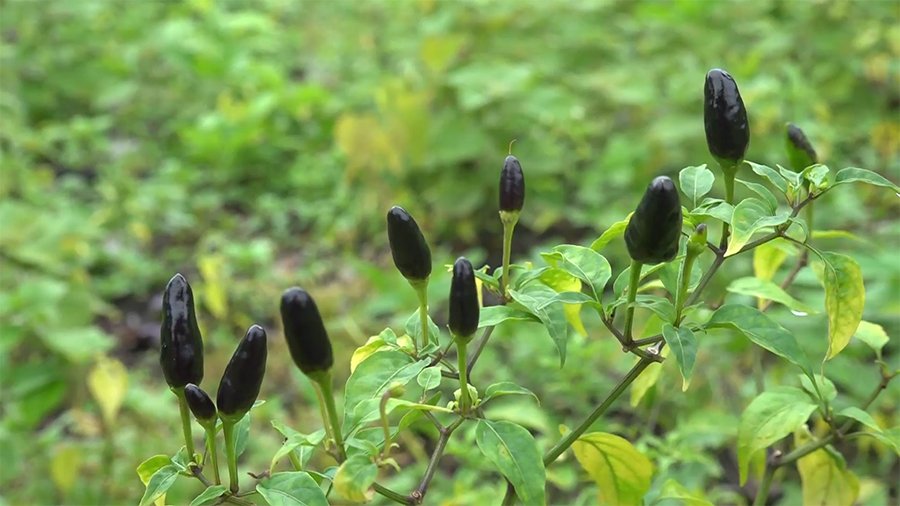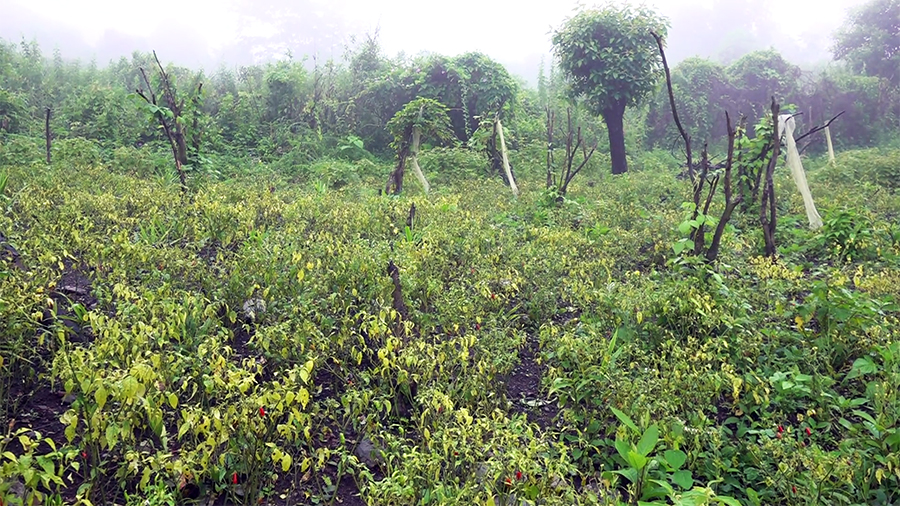
The famous “Orongpa solo” from Samdrup Jongkhar is facing an awful time this year. The chillies known for its spiciness and grown in Orong Gewog haven’t had a productive season as most of the chilli plants are dying. The Orongpa chillies are one of the main sources of income for the farmers of Orong Gewog.
Harvest season has started for the farmers of Philuma and Menchhari villages where the Orongpa chillies are mostly grown.
However, this year, the villagers have noticed a significant decline in productivity. They say the chilli plants started dying about two months ago and they do not know why.
The farmers here have been growing this variety of chilli for decades. But the origin of this unique chilli remains a mystery with even the village elders unsure of it. Over the years, the chilli has gained popularity for its exceptional taste and spice among the residents of Samdrup Jongkhar. It has become a primary source of income for more than 30 households in Orong Gewog.
But the present situation has left the villagers worried.
 “Leaves turn yellow and the plant begins to wither. Usually, at this time, it has to be green like this. Harvest season has started but the plants are dying. In a year, we used to earn about Nu 60,000 to 100,000 by selling chillies but this time it will be hard to produce even 50 to 60 kilograms of chillies also,” said Dorji Tenzin, a farmer.
“Leaves turn yellow and the plant begins to wither. Usually, at this time, it has to be green like this. Harvest season has started but the plants are dying. In a year, we used to earn about Nu 60,000 to 100,000 by selling chillies but this time it will be hard to produce even 50 to 60 kilograms of chillies also,” said Dorji Tenzin, a farmer.
“We are sad, but what can we do? We didn’t even inform the agriculture officials thinking there won’t be any option for it as we are not allowed to use pesticides and all. Leaves are becoming yellow and plants die, I have not sold anything,” said Tshewang Rinzin, another farmer.
The loss has not only affected the livelihoods of the farmers but also threatens the preservation of their traditional farming practice and heritage.
Meanwhile, agriculture officials say it could be because of excessive rainfall that may have led to secondary infection or nutrient leaching.
The Orongpa Solo fetches are around Nu 150 to 200 per kilogram and are mostly sold at Dewathang and Samdrup Jongkhar town.
Kinley Wangchuk, Samdrup Jongkhar
Edited by Yeshi Gyaltshen









